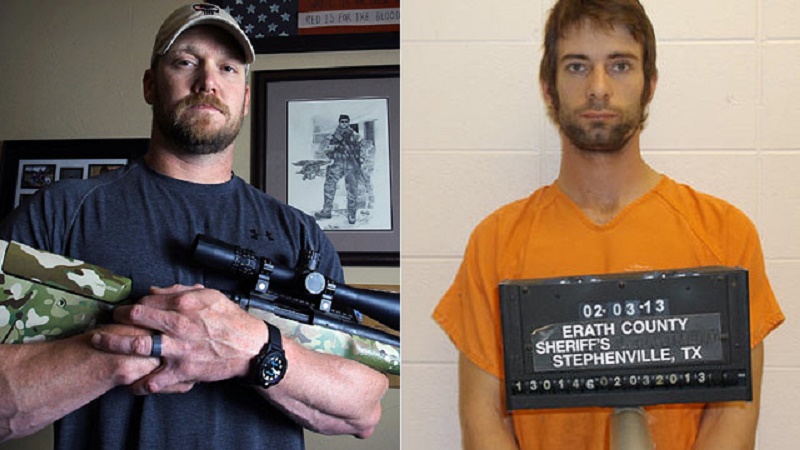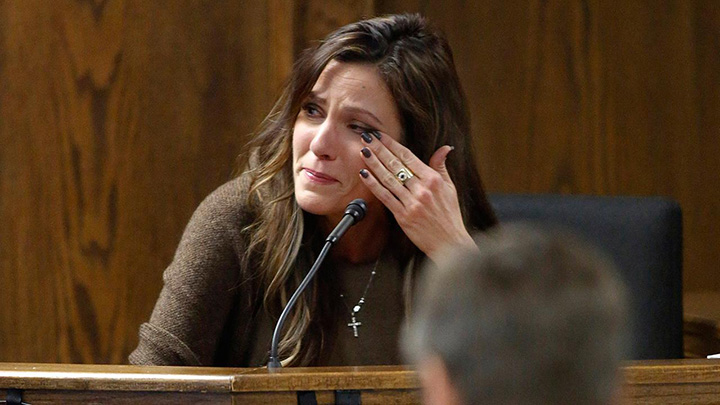
Real life "American Sniper," Christ Kyle, spent the morning before his death with his family and his wife Taya at their children's sporting events, while his accused killer, Eddie Ray Routh, drank whiskey and used marijuana.
The starkly contrasting images emerged as Routh's murder trial got underway in a Stephenville, Texas courtroom Wednesday.
Chris, a former Navy SEAL, agreed to meet with Routh, a former marine, on February 2, 2013, the day he and his friend, Chad Littlefield, were killed. According to reports, Kyle was attempting to help Routh overcome "severe PTSD" at the request of his mother.
However, Kyle's wife, Taya, who testified on Wednesday morning, remembers having a "bad feeling" about the meeting.
"We said we loved each other and gave each other a hug and kissed," Taya said recalling the moment her husband unknowingly said goodbye for the last time.
She tearfully told jurors that she sensed that "something was up, but I didn't know exactly what." Moments after the couple ended the call, Routh used two guns to fatally shot Chris five times in the back and once in the head. He then shot Littlefield four times in the back, once in the hand, once in the face and once on the top of his head.

Taya remembered texting her husband a few hours later, writing: "Are you OK? I'm getting worried." She said she never got a response and didn't know he had been shot until a police officer told her later.
The 27-year-old former Marine is pleading "not guilty" to both shooting deaths by reason of insanity.
"When he took their lives, he was in the grip of a psychosis, a psychosis so severe that he did not know what he was doing was wrong," defense attorney Tim Moore said adding that Routh thought "that he had to take their lives because, in his psychosis, he thought they were going to take his."
However, prosecutors have dismissed this as a baseless defense.
Erath County District Attorney Alan Nash described Routh as "a troubled young man" who on the morning of the killings numbed himself with marijuana and whiskey. He said a history of mental illness should not absolve Routh in the deaths.
"The evidence will show that mental illnesses, even the ones that this defendant may or may not have, don't deprive people from being good citizens, to know right from wrong," Nash said.
Added a prosecutor added to jurors, ""Routh may have been mentally ill - but he still knew right from wrong [when he killed both men]."
Kyle, who is hailed as the deadliest sniper in U.S. history, served four tours in Iraq before he left the military in 2009 to focus on his family. Before his death at 38, Kyle advocated for veterans' mental health and he often spent time with wounded war vets on the shooting range.
The trial comes just weeks after the release of "American Sniper," the Oscar-nominated film based on Kyle's 2012 autobiography. "Sniper" is the highest-grossing war film to date, garnering over $280 million since its release.
Prosecutors said previously they will not seek the death penalty against Routh, who could face up to life behind bars if convicted.














